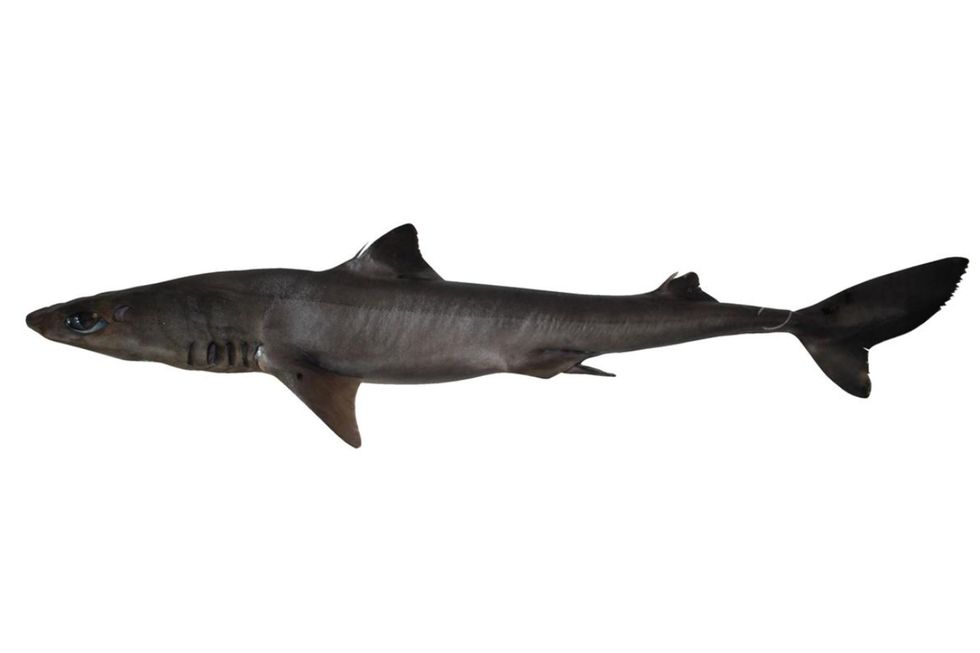Harriet Brewis
Jul 24, 2024
Sharks in Brazil Found with High Cocaine Levels
Cover Media - Shareable / VideoElephant
Anglers fishing off the coast of India hauled in more than they bargained for when they found a strange intruder snared in their nets.
The foot-long creature had large eyes and intimidating rows of pointed teeth, and it now transpires that it was a whole new species of deep-sea predator.
Their catch was found to be a previously undocumented type of shark, according to a study published in the journal Records of the Zoological Survey of India.
The paper was penned by researchers who had spent three years surveying deep-sea dogfish sharks off the Indian coast.
Dogfish are common along the northern Pacific and Atlantic coasts, and they can travel long distances. Their habitat can vary from depths of 3,000 feet (around 915 metres) to shallower waters, and they have been known to live as long as 70 years, according to the Seattle Aquarium.
Interestingly, unlike most sharks, dogfish are venomous – armed with two spines, one in front of each dorsal fin, that secrete a mild poison. This sharp armour serves as a defence mechanism against predators.

As part of their work, the scientists collected shark specimens caught by Indian fishermen. They were surprised to find that 13 of these, from Kerala in the southwest of the country, seemed different to other dogfish.
DNA tests and the analysis of other physical features revealed that the unusual specimens belonged to an entirely new species. This has now been named Squalus hima or the "Indian spurdog" after the lead researcher's daughter Hima.
According to the paper's authors, spurdog sharks can reach nearly one-and-a-half feet (almost 50 centimetres) in length and have slender bodies, pointed snouts, bright turquoise eyes and around 24 rows of teeth.
So far, this new group of sharks has been found in the Arabian Sea off the coast of Kerala, living at depths of roughly 1,000 to 2,000 feet (300 to 600 metres).
The good news is that this means we don't have a potential 'Jaws' monster on our hands. Indeed, unlike their fellow dogfish, spurdogs aren't even venomous.
Sign up for our free Indy100 weekly newsletter
How to join the indy100's free WhatsApp channel
Have your say in our news democracy. Click the upvote icon at the top of the page to help raise this article through the indy100 rankings
Top 100
The Conversation (0)














